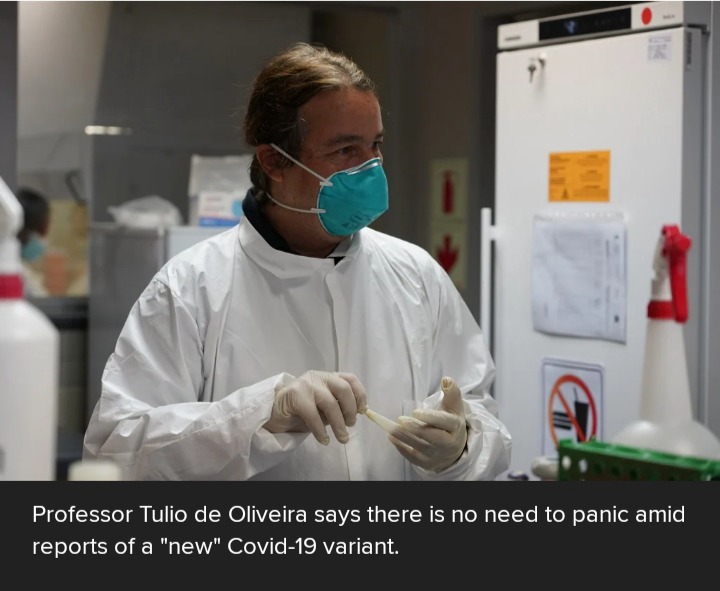In an effort to alleviate any unnecessary concern, Prof. Tulio De Oliveira, a respected researcher and virologist, is assuring the public that there is no need to panic in response to reports of a supposed “new” COVID-19 variant. He explains that the variant in question, EG.5, is not actually new or particularly harmful to any specific group of people. It is, in fact, a lineage or subcategory of the Omicron variant.
However, Oliveira raises concerns about the nickname given to this variant, “Eris,” which he believes has created confusion and unnecessary panic. He criticizes the scientists responsible for this nickname, pointing out that they are not recognized by reputable organizations such as the World Health Organization (WHO).
He argues that such new and unofficial names only serve to perpetuate the misconception that a completely new variant has emerged, causing unnecessary fear and anxiety. It is important for the public to rely on accurate information from trusted sources and not be swayed by unverified naming conventions that may exacerbate concerns surrounding the COVID-19 pandemic.
While countries like the United States of America, Europe, and Asia are grappling with a surge in COVID infections and hospitalisations, South Africa seems to have avoided this unfortunate trend. Despite the global rise in cases, South Africa has managed to keep the infection and hospitalisation rates relatively low. This positive outcome can be attributed to the EG.5 “Eris” coronavirus, which is a subvariant of the Omicron lineage that emerged in November 2021.
Health experts emphasise that although the risk of severe illness remains a concern, particularly for vulnerable populations such as older adults and those with underlying health conditions, the EG.5 variant does not pose a significantly greater threat compared to other major variants prevalent across the globe. This is reassuring for the population, as it suggests that South Africa has been spared from a more severe wave of infections that is currently crippling healthcare systems in other parts of the world.
It is important to note that while the infection and hospitalisation rates in South Africa remain stable, this doesn’t eliminate the risk entirely. Health officials and the public must remain vigilant and continue practising preventive measures to avoid any potential resurgence in cases.
https://t.co/By0KBr6fGt | Alert but not concerned: Experts respond to 'new' Covid-19 Omicron EG.5 https://t.co/RzniOYqWx5
— News24 (@News24) August 14, 2023
Content created and supplied by: South_African_Headlines_News (via Opera
News )
